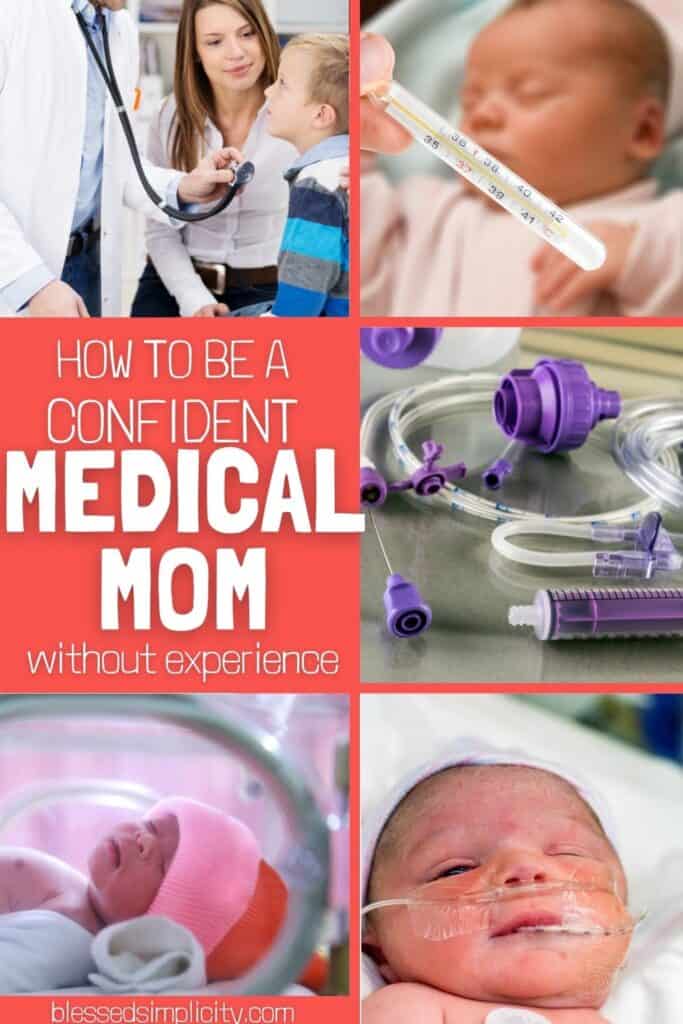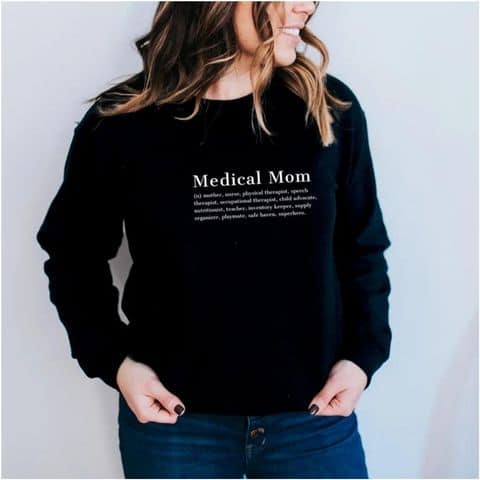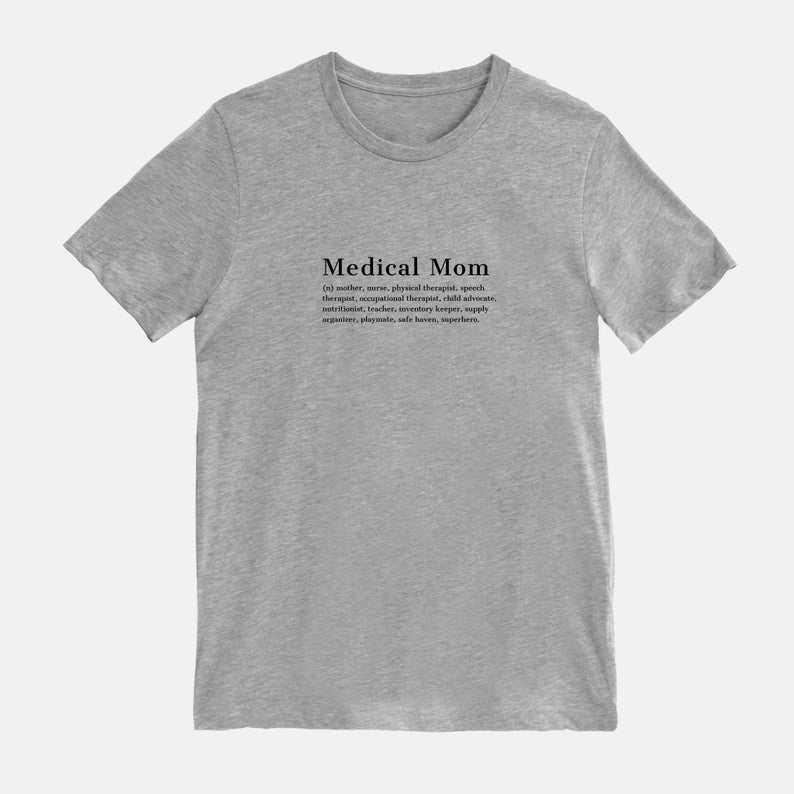How to be a medical mom
Giving birth to or adopting a medically complex child can be extremely stressful, especially if you have no prior medical training or knowledge. However, with just a few tips, you can be well on your way to learning the ropes of how to be a medical mom in a very short time. You can find this list and many other resources for medical moms here.

*This post contains affiliate links. Please see full disclosure policy below.
How to Be a Medical Mom
Once you have a medically complex or medically fragile child, you are a medical mom. Whether you want to be or not, you will be different. You will spend more time in hospitals, doctor’s offices, and therapy centers than other moms. The good news is you get to decide how you will handle your new title. Below are some of the best tips I can offer from my sixteen years of experience as a medical mom, including the things I wish I had known early on.
Become a Student
First, acknowledge that you do not know everything there is not know about your child’s condition, but you can learn. Now that you are a mom of a medically complex child, you must become a student of all things medical, especially as they relate to your child and his condition. It is vitally important that you learn everything you can about your child’s condition if you are to advocate for him.
Take Notes
Whenever meet with a doctor, nurse, therapist, or technician about your child take good notes. Your notes will help you remember the details that can sometimes be forgotten if they are not the main focus of the visit. A few things you might want to keep in your notes are:
- Vital signs. These are not always shared between doctors and facilities.
- Any diagnosis mentioned
- Follow up suggested
- Instructions for home care
- Medications recommended
- Other providers you might be referred to
- Things the doctor is supposed to research or follow up on. The docs are human. They can forget.
- Lingo – write down words that you hear but do not understand and look them up later or ask someone the meaning.
Ask Questions
One of the most important things I did when I first became a medical mom was asking questions, lots of them! I asked questions of every medical professional who came in contact with my child. I learned about blood pressures and heart rates from the CNAs. I learned tons from nurses on the hospital floors. I asked “why” about every exercise my child did in therapy.
The only stupid question is the one that is never asked. The more you ask the more you learn. When medical providers don’t seem to want to answer, you can always ask if you can schedule a consultation appointment without your child present just to answer your questions. You can also leave a list of questions and ask for a written answer.
Ask for Resources
When I spend the first three months of my daughter’s life in the NICU, there was not much else I could do other than bible study and read journal articles. Anytime there was a new diagnosis or procedure for my daughter, I asked for literature to read so I could educate myself.
Many hospitals have an education department or at the very least, a library. Many times those libraries have educational material that is available for parents. You can usually ask for information about a specific topic and someone will often gather it and bring it to you. You can also ask for access to the online library for the physicians.
Google Everything (with caution)
If you are not having much luck getting educational resources from your doctors or your hospital staff, you can always use good old Google. There is a ton of information online about a wide range of topics, I would just caution you to take a look at the source before you trust the information.
Sometimes the information you find online can provide a starting point for discussions with your doctors. Sometimes you will find treatments that your doctors are not aware of for your child’s condition (this happened to me with my youngest.)
Keep Records
I cannot encourage you enough to keep well documented records of everything that pertains to your child. These records should include doctors you see and the notes from those doctors, daily vital signs for your child, medication records, a daily record of your child’s activities, input and output records, and even records of your child’s mood and behavior.
When you see a doctor, particularly for a new problem, you and your doctor will both appreciate your having detailed records. When you have written records, you have much more than just a memory or an account of a single event, you have data, and data is invaluable. This also makes you a reliable historian for your medical providers.
Follow Blogs of other Medical Moms
When you are a new medical mom, following the blogs or micro blogs on Instagram of other medical moms, especially those with the same or a similar condition as your child, will educate you and help you to feel that you are not alone. You can learn what to expect from watching other children with similar struggles to your own. You can get lots of practical knowledge and skills like how to store medical supplies and equipment.
Learn the Value of your Knowledge of Your Child
When you venture into this world of being a medical mom, you may often feel that you are out of your depth with all of the medical lingo and diagnoses. Please remember that you bring something to the table that only you can. You are mom. You are uniquely connected with your child. You alone know when you child “just isn’t acting right.” Do not discount the value of this knowledge, and be sure to find a pediatrician who understands this value as well.





